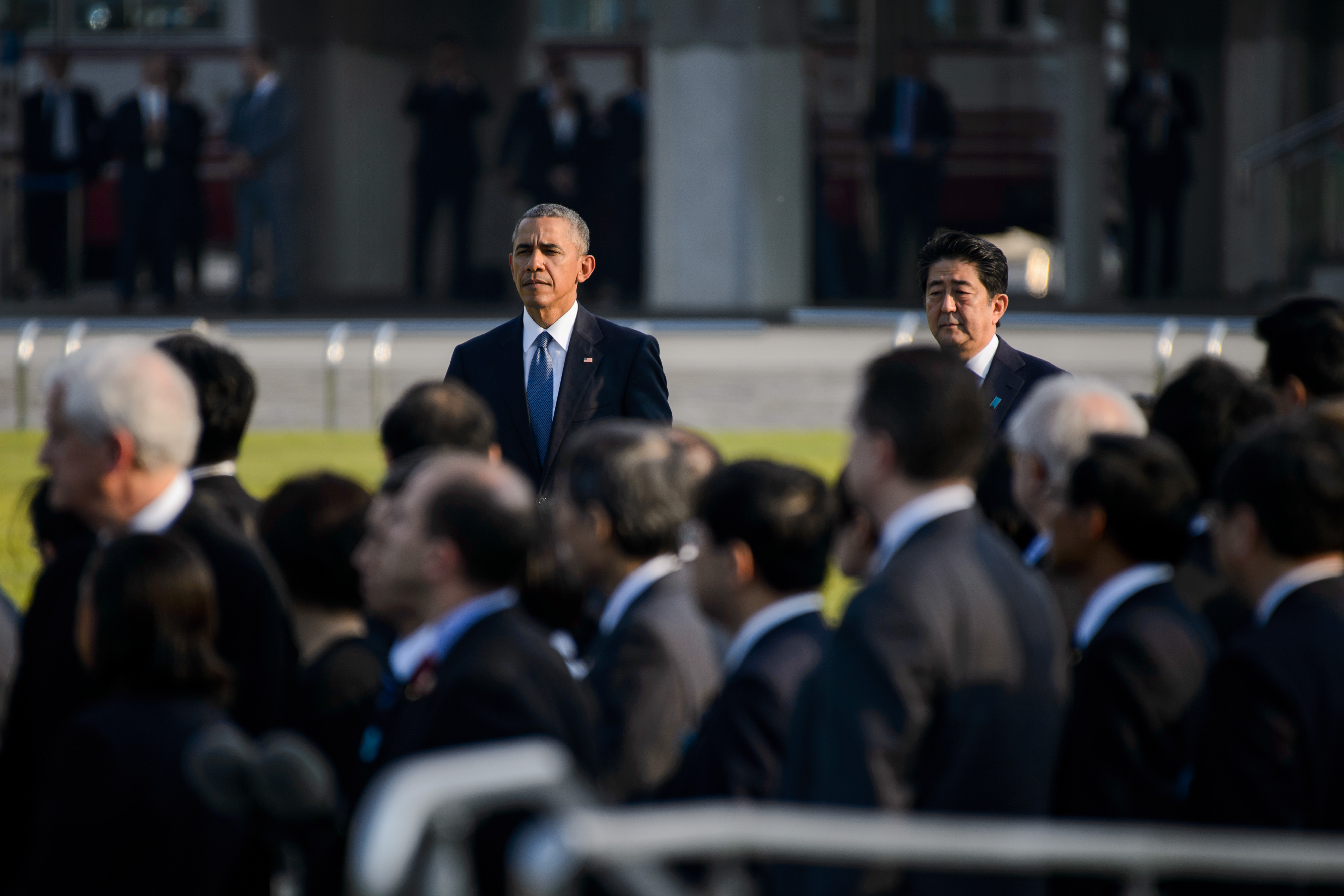For Prime Minister Shinzo Abe, the best thing about the recent G-7 Ise-Shima summit was that it gave him cover to wriggle out of a planned tax increase. He could pretend postponing the tax increase is a statesman-like concession to boosting global growth, rather than a way to pander to voters in the upcoming Upper House elections. For those who insist that the tax postponement signals the failure of Abenomics, Abe's riposte is "The global economy ate my homework!"
Hosting the G-7 summit was supposed to be an opportunity for Abe to strut tall on the international stage, rubbing shoulders with the heads of state that represent the rich nations, but things didn't really go to plan. Abe found that herding cats is easier than finding common ground with world leaders.
G-7 leaders are disappointed with Japan's trivial role in the refugee crisis. Last year at a U.N. General Assembly, Abe fobbed off questions about what Japan would do to help by saying it was more important to address domestic economic problems, such as promoting women and the elderly in the workforce, than to assist refugees — a stand that fits with Japan's accustomed role of punching below its weight on the global stage.



















With your current subscription plan you can comment on stories. However, before writing your first comment, please create a display name in the Profile section of your subscriber account page.